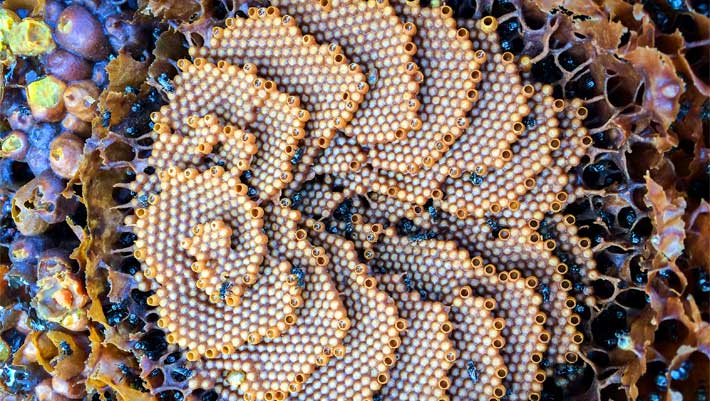Now Reading: Australian Stingless Bee Honey Found to Have Unique Antimicrobial Properties: Study
-
01
Australian Stingless Bee Honey Found to Have Unique Antimicrobial Properties: Study
Australian Stingless Bee Honey Found to Have Unique Antimicrobial Properties: Study

Fast Summary
- Research Findings: Honey produced by Australian stingless bees (species include Tetragonula carbonaria, Tetragonula hockingsi, and Austroplebeia australis) exhibits strong antimicrobial properties against human pathogens, surpassing most European honeybee honey (Apis mellifera).
- Unique Characteristics:
– Both hydrogen peroxide and non-peroxide antimicrobial activity present.
– Non-peroxide activity remains consistent across diverse locations and nectar sources.
– Heat-treated stingless bee honey retains antimicrobial potency.
- Commercial Potential:
– Stingless bee hives are low-maintenance but yield only about half a liter of honey annually. However, scalability is deemed feasible with proper incentives.
– Regulatory approval from Food Standards Australia New Zealand was achieved in the previous year, opening opportunities for commercialization nationally and internationally.
- Comparison to Manuka Honey: Unlike Manuka honey that relies on specific plants (Leptospermum), stingless bee honey’s antimicrobial consistency is attributed to the bees themselves.
Indian Opinion Analysis
The finding of potent antimicrobial properties in Australian stingless bee honey highlights its potential as an alternative to synthetic antibiotics. With the increasing global issue of antimicrobial resistance, such innovations could aid medical science significantly. For India-a nation grappling with antibiotic overuse-this development may inspire local initiatives exploring indigenous natural products for health applications. However, scalability challenges reinforce the importance of balancing conservation efforts with commercial interests.
Collaboration-driven research integrating biodiversity preservation with health advancements offers a promising path forward for global health solutions.Moreover, India’s traditional knowledge regarding medicinal use of biodiversity could play a role in fostering similar studies domestically, bridging science with sustainability.




























